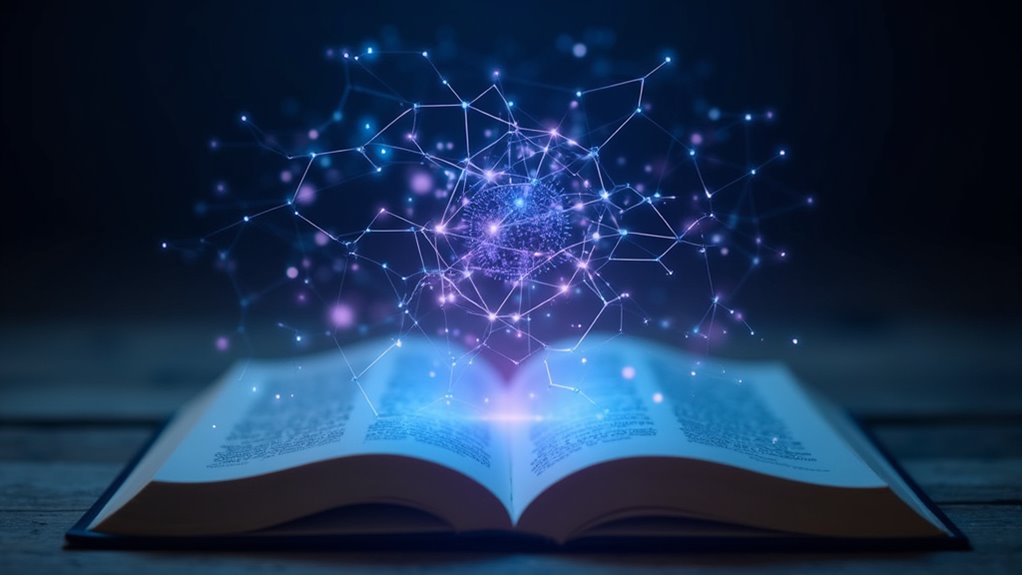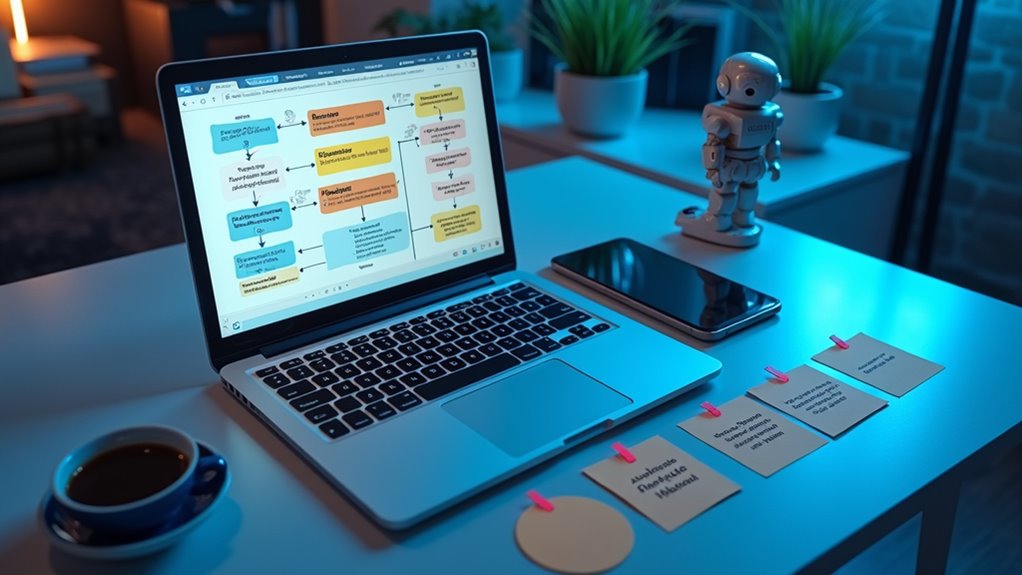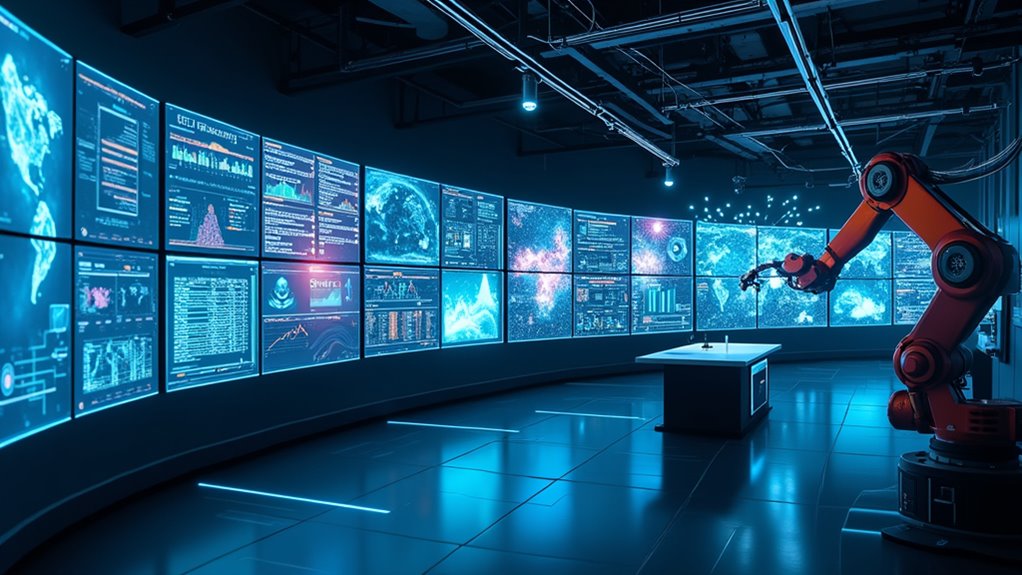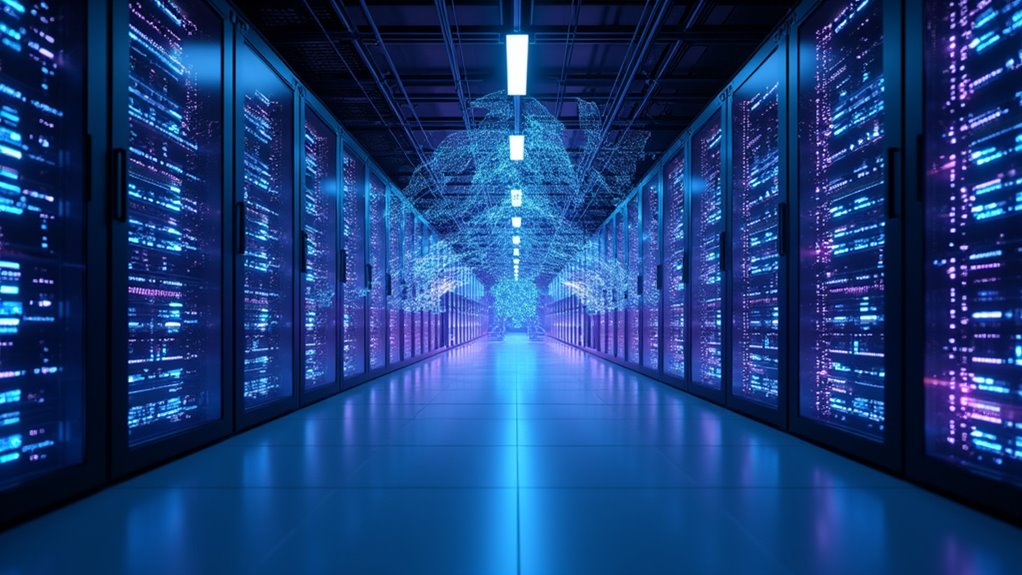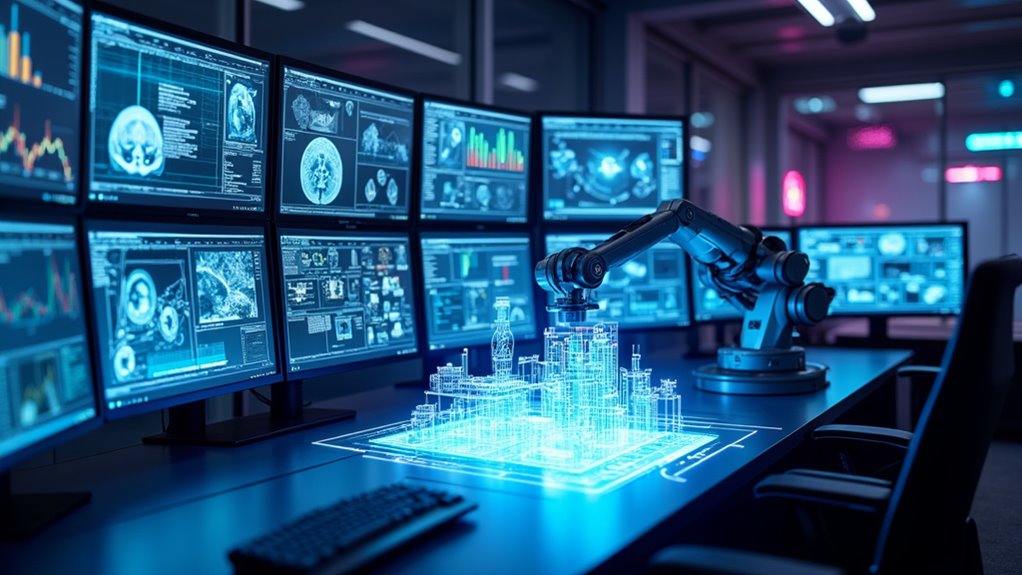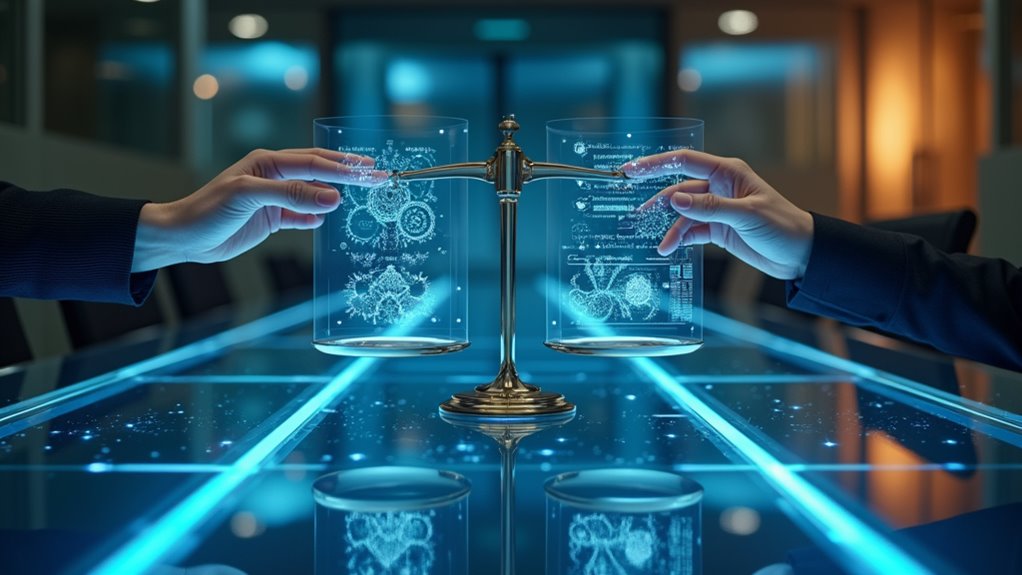An AI dictionary is your survival guide to the expanding world of artificial intelligence terminology. From machine learning basics to neural network complexity, these specialized glossaries translate tech jargon into plain language. You’ll find explanations for narrow AI (like your smart thermostat) versus theoretical general AI (still science fiction, folks). Don’t get left behind as AI reshapes industries—understanding these terms isn’t optional anymore. The digital landscape awaits those who speak its language.
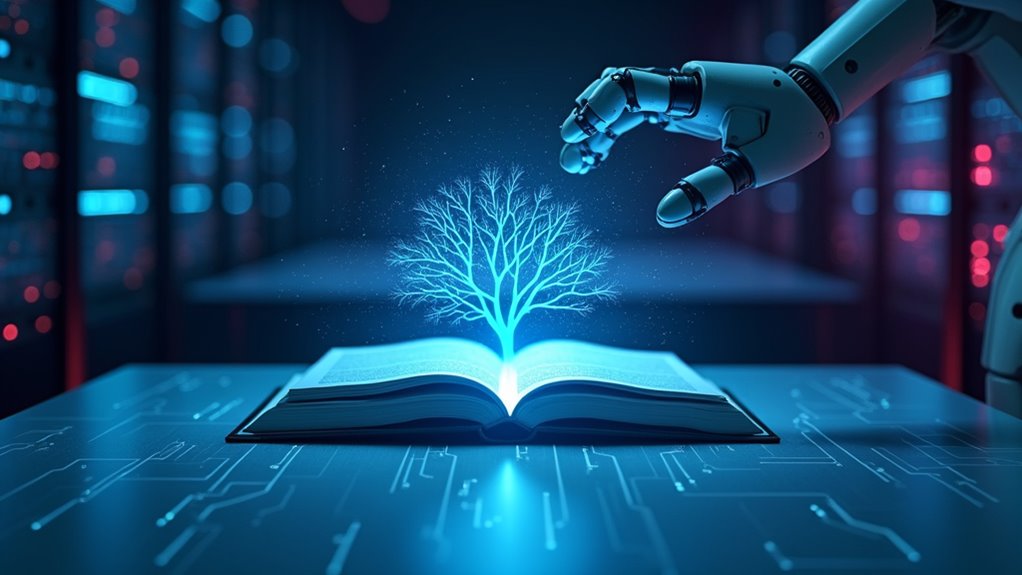
As technology continues to reshape our world, understanding artificial intelligence has become essential for anyone hoping to navigate the digital landscape. AI, simply put, refers to machines that can simulate intelligent behavior—think computers that learn, solve problems, and make decisions without explicit programming. This concept isn’t new; it dates back to 1955, though recent advances have propelled AI into nearly every industry you can imagine.
At its core, machine learning drives most AI applications you encounter daily. It’s the technology that allows computers to improve through experience rather than direct programming. Your streaming service recommends shows you might like? That’s machine learning analyzing your viewing habits.
Neural networks, inspired by our brains, power these systems by processing information through interconnected layers of artificial neurons. These networks can contain thousands of layers in complex systems, enabling everything from voice assistants recognizing your commands to medical imaging systems identifying diseases. Effective vocabulary development in this field requires students to use context and morphology as strategies for understanding complex terminology.
AI comes in different flavors, too. Narrow AI (what we actually have today) performs specific tasks exceptionally well—like recognizing faces or playing chess. General AI, which would match human intelligence across all domains, remains theoretical. And superintelligence? That’s still science fiction territory. Despite impressive capabilities, current AI systems operate through pattern recognition rather than genuine understanding or consciousness. The extensive etymology and semantic development of AI terminology mirrors the approach seen in Historical English Dictionary resources, providing crucial insights into technical language evolution.
The applications stretch far beyond your smartphone. AI analyzes massive datasets to uncover patterns humans would miss, automates repetitive tasks in factories, and powers the robots transforming manufacturing.
In business, AI chatbots handle customer service inquiries, predict market trends, and optimize supply chains. Understanding this terminology matters because AI isn’t just for tech experts anymore. It’s reshaping healthcare, transportation, finance, and education.
Whether you’re a business owner, student, or consumer, AI impacts your daily life. The technology continues evolving rapidly, with each advancement expanding the AI dictionary and its real-world applications. Master these terms now—you’ll need them sooner than you think.
Frequently Asked Questions
What Skills Are Needed to Work in AI?
Working in AI requires a toolkit of both technical and soft skills. First, you’ll need programming languages like Python and R—they’re non-negotiable.
Machine learning concepts are essential too; without them, you’re just coding random stuff. Data analysis abilities let you make sense of chaotic information.
Don’t forget critical thinking and communication—because what good is building AI if you can’t explain why it matters?
The field evolves constantly, so adaptability isn’t optional, it’s survival.
How Is AI Regulated Across Different Countries?
AI regulation varies dramatically across the globe, with no true global standards to speak of.
The EU leads with its extensive AI Act, while North America relies on patchy, sector-specific approaches.
Asia shows striking contrasts—China’s centralized control versus Japan’s flexible guidelines.
Latin American countries are just developing policy frameworks.
This regulatory patchwork creates serious compliance challenges for companies operating internationally.
The race is on to balance innovation with ethical guardrails, but nobody’s quite cracked the code yet.
Can AI Develop Consciousness or Self-Awareness?
Current AI systems lack consciousness and self-awareness, though theories vary on whether this will always be true.
Consciousness theories like Global Workspace and Recurrent Processing suggest potential pathways, but we’re nowhere close yet.
Self-awareness criteria would require machines to genuinely understand their own existence—not just mimic it.
Could it happen someday? Maybe. Should we worry about it now? Not really.
The technical barriers remain substantial, despite what sci-fi movies suggest.
What Ethical Frameworks Guide AI Development?
AI development is guided by several ethical frameworks. Utilitarian ethics focuses on maximizing benefits while minimizing harm across all affected parties.
Deontological principles, meanwhile, emphasize respecting fundamental rights regardless of outcomes. These frameworks manifest in practical guidelines like UNESCO’s AI Ethics Agreement and IBM’s governance structures.
Companies face implementation challenges like bias mitigation and privacy protection.
Want ethical AI? Demand transparency from developers, hold them accountable, and remember—ethical AI isn’t just nice, it’s necessary.
How Does AI Impact Job Security and Future Employment?
AI’s double-edged sword slices through today’s workforce. Job displacement is real—up to 800 million jobs might vanish by 2030. Yikes!
But don’t panic yet. New roles like AI ethicist and prompt engineer are popping up everywhere. The key? Skill evolution. Your grandpa’s career path is ancient history; today’s workers need continuous upskilling to stay relevant.
Companies aren’t waiting around either—77% are already implementing AI, ready or not.
